Non-globular proteins in the era of Machine Learning
COST Action CA21160
CONFERENCE
THIS EVENT HAS PASSED.
2nd ML4NGP MEETING on Machine Learning and Non-globular proteins
May 14-17, 2024
Thessaloniki, Greece
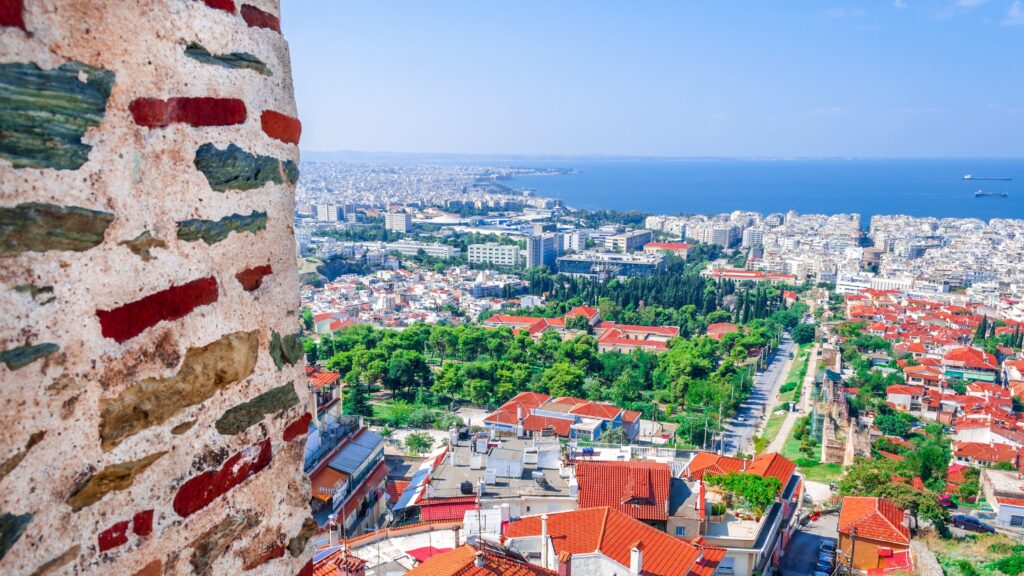
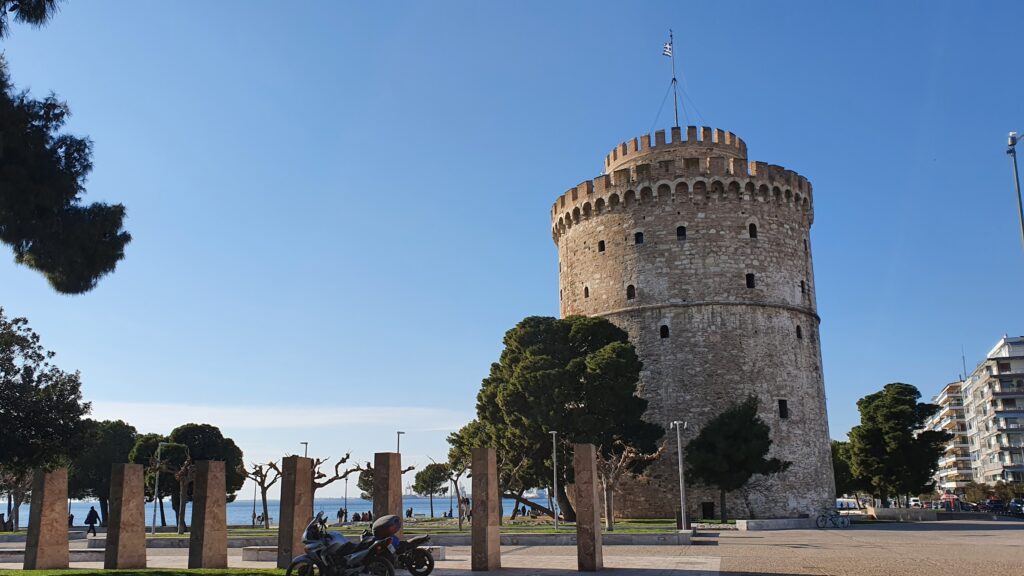
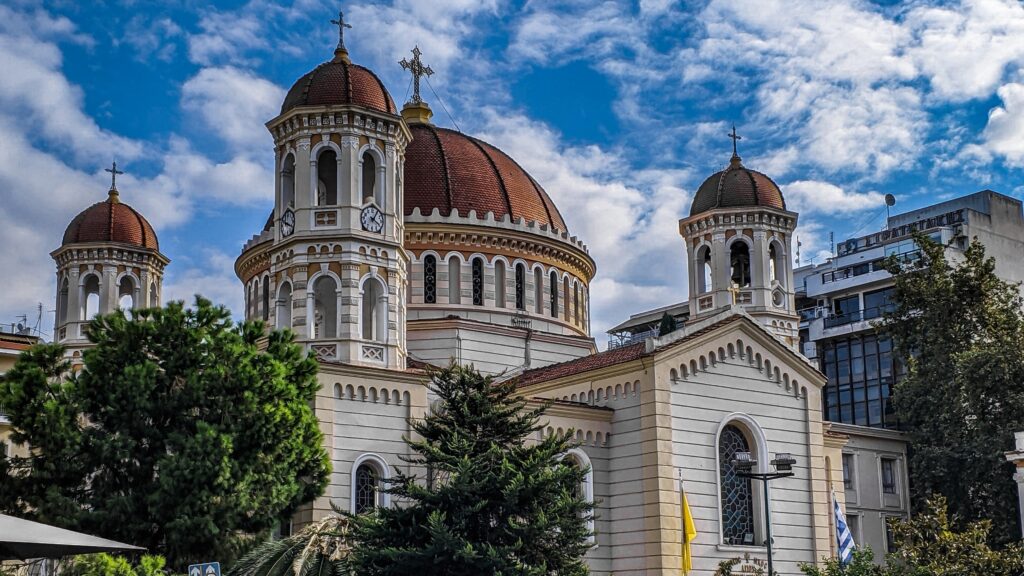
welcome message
The 2nd ML4NGP MEETING 2024 will take place from 14 to 17 May in Thessaloniki (Greece). This conference will provide a fantastic opportunity for computational researchers and experimentalists to present and discuss current developments in Machine Learning tools and their applications for the study of non-globular proteins.
This meeting is co-organized in the framework of COST ACTION CA21160 Non-globular proteins in the era of Machine Learning – ML4NGP and MSCA-RISE REFRACT GA823886.
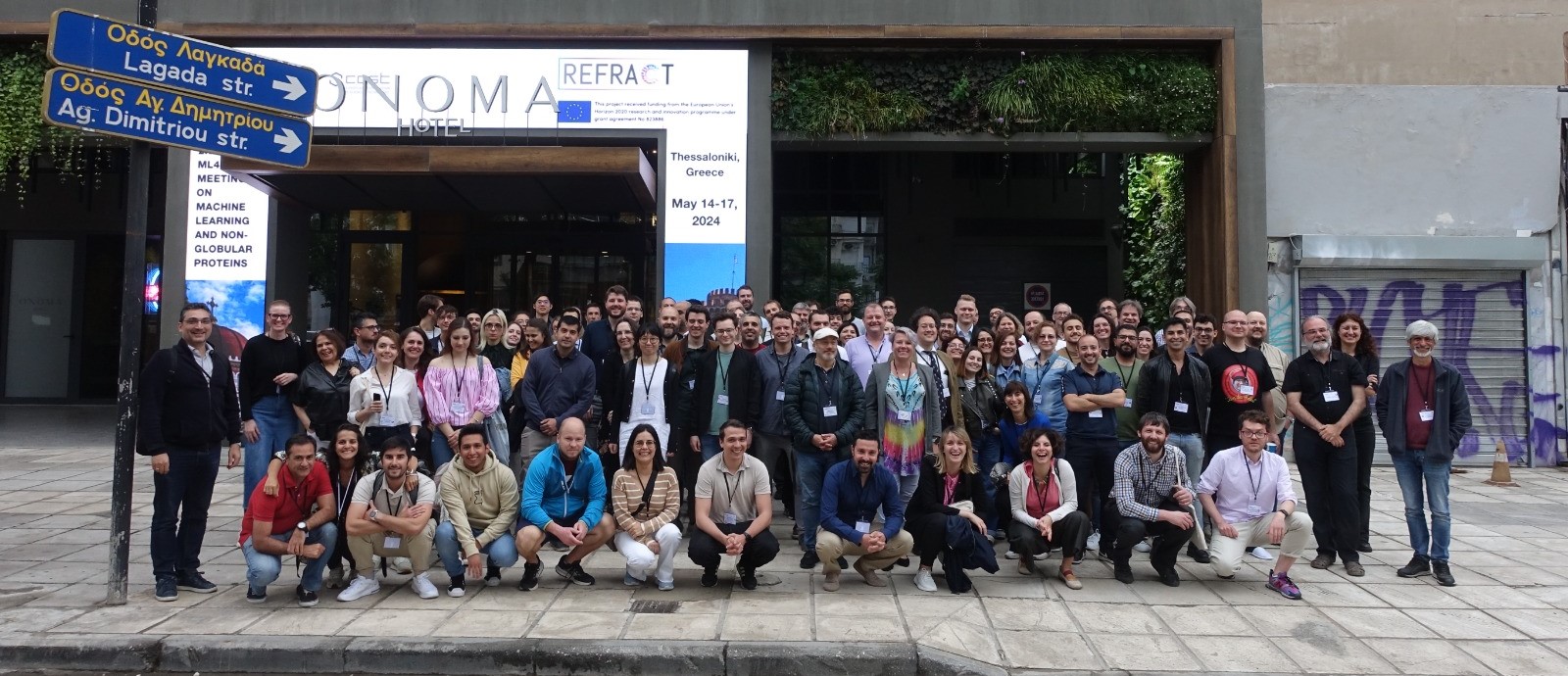
|
Deadline |
Status |
|
|
Abstract submission deadline (posters & talks) |
March 3, 2024 |
CLOSED |
|
Abstract decision |
March 5, 2024 |
CLOSED |
|
Late abstract submission deadline (posters only) |
March 24, 2024 |
CLOSED |
|
Late abstract decision |
March 31, 2024 |
CLOSED |
|
Registration |
April 15, 2024 |
CLOSED |
|
Conference dates |
May 14-17, 2024 |
ENDED |
No registration fee for this conference, only a meal package fee.
The meal package fee is 155 EUR to cover lunches and the welcome reception.
The social dinner (Thursday, May 16, at the Onoma Hotel) is optional and is not included in the meal package. The cost is 42 EUR, and includes a buffet menu and beverages.
Participants involved in the ML4NGP COST Action who have been selected to deliver talks will be eligible for travel fellowships (full travel reimbursement, and a daily allowance of 150 EUR for accommodation, meals and local transportation) from COST.
Participants from ML4NGP COST Action with selected abstracts for posters will also benefit from the travel fellowship on a best effort basis.
abstract information
The abstract should have a maximum of 400 words consisting of a brief and concise summary of the background/motivation for the study, methods, and result(s), as well as conclusions/statements of significance. The abstract is submitted through the submission form. Applicants may choose to have their submission considered for talk and poster or poster only. Abstracts that are not selected for the talk will be considered for a poster.
*A few poster abstracts will be selected to give a flash presentation during the symposium.
Presentation time
Keynote lectures | Speaking time is 35 minutes plus 5 minutes discussion.
Invited talks | Speaking time is 25 minutes plus 5 minutes discussion
Short talks | Speaking time is 15 minutes plus 5 minutes discussion.
Flash posters | Speaking time is 5 minutes.
Posters should have up to A1 size – 59.4cm (width) x 84.1 cm (height).
Poster presenters are requested to set up their posters in the designated area before each poster session starts. Presenters are expected to be available near their posters during the assigned session. More information will be provided near the event.
Speakers are required to have their presentation ready on a USB key.
Your slides should be either in .pdf, .ppt or .pptx format.
Location & venue
The 2nd ML4NGP Meeting 2024 will take place at the five-star Onoma Hotel, in Thessaloniki, Greece.
THESSALONIKI
Thessaloniki is the second largest city in Greece with a rich historical tapestry that dates back to ancient times. From the iconic White Tower to the lively Aristotelous Square, Thessaloniki captivates with its vibrant street life, cultural events, and a welcoming fusion of traditional and modern elements.
Find more about the beautiful city at the official webpage: https://thessaloniki.gr.
VENUE
The Onoma Hotel offers a unique experience for events and meetings with a stylish home-like decor, flooded with natural light, surrounded by homey objects, any event becomes exciting and un-boring. Onoma Hotel is approximately 17 kilometers from Thessaloniki Airport Makedonia.
24 Monastiriou Str
Thessaloniki, Greece 54629
Tel. 30 2310-2314423300
CONFERENCE PROGRAM
Confirmed Speakers

Prof. Michele VENDRUSCOLO
University of Cambridge, UK
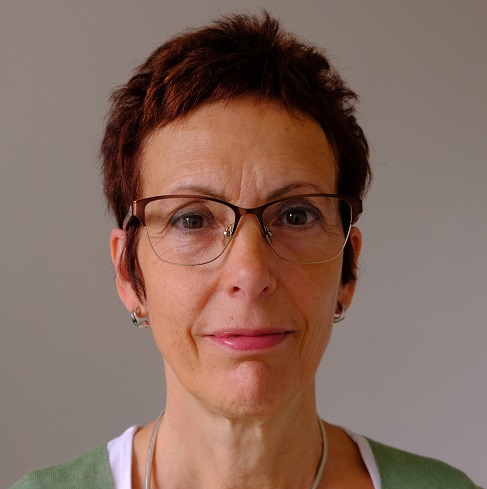
Prof. Christine ORENGO
University College London, UK
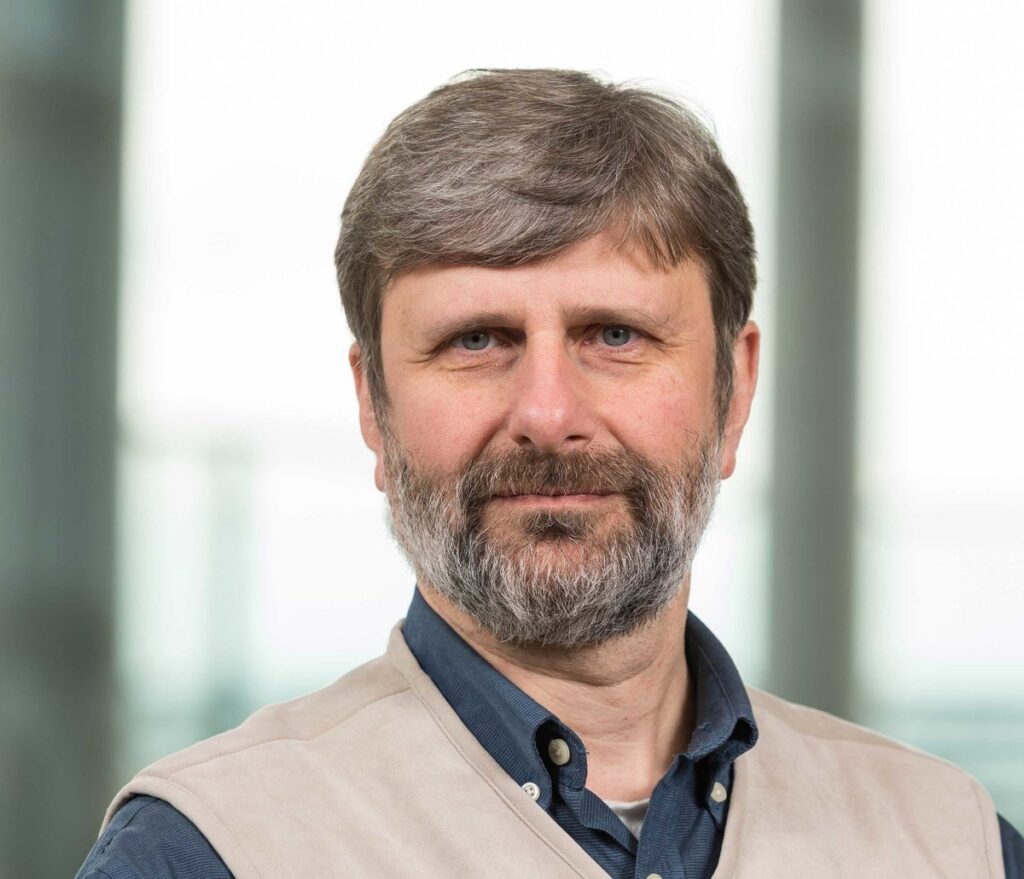
Dr. Andrei Lupas
Max Planck Institute for Biology Tübingen, ELIXIR, UK, Germany
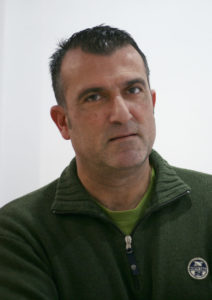
Prof. Christos A. Ouzounis
Centre for Research and Technology Hellas, Thessaloniki, Greece
Final Program
Monday, May 13
16:00-18:00
Registration
18:00-19:30
Core Group Meeting (close session)
Tuesday, May 14
08:00-09:30
Registration
09:30-09:40
Opening Session
WG1 SESSION – Primary experimental data generation
09:40-10:20
Keynote Lecture
What does AlphaFold reveal about the folded regions in the protein universe?
Christine Orengo
10:20-10:40
Short Talk
Structural studies of mineral interactions with intrinsically disordered magnetosome-associated proteins
Raz Zarivach
10:40-11:10
Coffee Break
11:10-11:30
Short Talk
Spider silk: from NMR structural studies to mechanism of formation and high-performance artificial fibres
Kristaps Jaudzems
11:30-11:50
Short Talk
A disordered loop in a bacterial adhesin can form a poly-proline II helix upon binding to heparin
Dirk Linke
11:50-12:10
Short Talk
The role of environment in amyloid aggregation
Vytautas Smirnovas
12:10-12:30
Short Talk
Cryo-EM structures of functional and pathological amyloid ribonucleoprotein assemblies
Javier Garcia Pardo
12:30-14:00
Lunch
14:00-15:40
WG1 meeting
15:40-16:10
Coffee Break
16:10-16:40
Selected Talk
The Cys sense: Regulation of cellular proliferation and protein homeostasis through redox-switch proteins
Dana Reichmann
16:40-17:00
Short Talk
Hidden flexible state(s) of sigma-1.1 domain of RNA polymerase
Pavel Kaderavek
17:00-18:10
Flash Poster Presentations
18:10-19:00
WG5 meeting and activities
19:00-21:00
Welcome Reception
Wednesday, May 15
WG 2 SESSION – Integrative structural biology with machine learning-based approaches
09:30-10:10
Keynote Lecture
Sequence-Based Drug Discovery for Disordered Proteins
Michele Vendruscolo
10:10-10:30
Short Talk
Weighted families of contact maps to characterize conformational ensembles of (highly-)flexible proteins
Juan Cortes
10:30-10:50
Short Talk
Development of machine learning algorithms for the prediction of the binding affinity between peptides and their target proteins
Kanin Wichapong
10:50-11:20
Coffee Break
11:20-11:50
Selected Talk
Combined use of NMR spectroscopy and computation to understand protein phase separation
Markus Zweckstetter
11:50-12:10
Short Talk
Pioneer factor Sox2 remodels nucleosomes and displaces histone H1
Sveinn Bjarnasson
12:10-12:30
Short Talk
Residue Interaction Network Generator v4: improved interaction recognition for all 35,000 PDB chemical components
Alessio Del Conte
12:30-14:00
Lunch
14:00-15:40
WG2 meeting
15:40-16:10
Coffee Break
16:10-16:30
Short Talk
FAIR Research Software as the catalyst for trustworthy AI in Life Science
Fotis Psomopoulos
16:30-16:50
Short Talk
Understanding specific interactions in phase-separated Germ granules by multi-scale simulations
Vasileios Xenidis
16:50-17:10
Short Talk
Local Energetic Frustration and Intrinsic Protein Disorder
Gonzalo Parra
17:10-17:30
Short Talk
Disorder of disease-related proteins – a case study of IGDD
Jovana Kovacevic
17:30-19:00
Poster Session I
Thursday, May 16
WG 3 SESSION – ML predictors and methods in the NGP field
09:30-10:10
Keynote Lecture
The virtual proteome of life: What is it and why should we care?
Andrei Lupas
10:10-10:30
Short Talk
Transferable deep generative modeling of intrinsically disordered protein structural ensembles
Giacomo Janson
10:30-10:50
Short Talk
Developing machine-learning-based amyloid predictors with Cross-Beta DB
Valentin Gonay
10:50-11:20
Coffee Break
11:20-11:50
Selected Talk
Data-driven modeling of the intrinsically disordered proteome
Giulio Tesei
11:50-12:10
Short Talk
Automatic Classification of Units in Tandem Repeat Proteins
Michela Quadrini
12:10-12:30
Short Talk
LCR-dataset: manually curated benchmark for training and fine-tuning language models to retrieve information on Low Complexity Regions and its functional annotations from scientific literature
Aleksandra Gruca
12:30-14:00
Lunch
14:00-15:40
WG3 meeting
15:40-16:10
Coffee Break
16:10-16:40
Selected Talk
Critical assessment of protein intrinsic disorder prediction (CAID) – Results of round 3
Damiano Piovesan
16:40-17:00
Short Talk
Deciphering Allosteric Pathways
Turkan Haliloglu
17:00-17:20
Short Talk
Optimizing energy functions with neural networks
Gabor Erdos
17:20-19:00
Poster Session II
19:30-21:00
Social Dinner
Friday, May 17
WG 4 SESSION – functional characterization of NGPs
09:30-10:10
Keynote Lecture
From structure-function and globular proteins to non-globular proteins and the functional dark matter
Christos Ouzounis
10:10-10:30
Short Talk
aSynPEP-DB: a database of biogenic peptides for inhibiting α-synuclein aggregation
Carlos Pintado Grima
10:30-10:50
Short Talk
From interaction networks to interfaces, scanning intrinsically disordered regions using AlphaFold2
Diego Javier Zea
10:50-11:20
Coffee Break
11:20-11:50
Selected Talk
Blending Biology, Chemistry and AI to Enable Personalized Systems Pharmacology
Patrick Aloy
11:50-12:10
Short Talk
Folding-upon-binding pathways of an intrinsically disordered protein from a deep Markov state model
Thomas Sisk
12:10-12:30
Short Talk
Exploring the biophysical boundaries of protein families with deep learning methods
Miriam Poley
12:30-14:00
Lunch
14:00-15:40
WG4 meeting
15:40-16:10
Coffee Break
16:10-16:30
Short Talk
Perturbation modelling across single-cell omic modalities
Georgios Gavriilidis
16:30-16:50
Short Talk
MAVISp, a modular structure-based framework for protein variant interpretation: current and future developments for supporting non-globular proteins
Matteo Arnaudi
16:50-17:10
Short Talk
Classification and prediction of amyloid-forming propensity of amino acid sequences
Rafayel Petrosyan
17:10-17:30
Short Talk
Voronoi tessellation-based analysis of 3D conformations of non-globular proteins
Kliment Olechnovic
17:30-17:50
Closing Remarks
ORGANIZATION
LOCAL ORGANIZING COMMITTEE
Fotis Psomopoulos, Centre for Research and Technology Hellas, Thessaloniki, Greece
Elena Bakoglidou, Centre for Research and Technology Hellas, Thessaloniki, Greece
Anastasia Chasapi, Vidavo S.A, Thessaloniki, Greece
SCIENTIFIC COMMITTEE
Alexander Miguel Monzon, ML4NGP chair, Department of Information Engineering, University of Padua, Italy
Core Group of ML4NGP COST Action
contact information
Information and inquiry: info@ml4ngp.eu
CONSORTIA

This event is part of the activities of the COST Action ML4NGP, CA21160, supported by COST (European Cooperation in Science and Technology).
